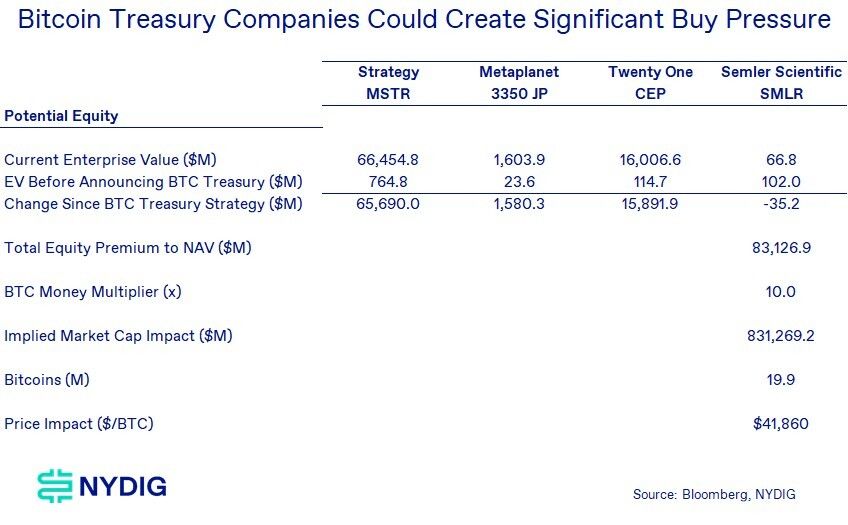
Recent
reporting
from
CoinDesk
and
Fortune
suggests
the
U.S.
Securities
and
Exchange
Commission
is
preparing
to
classify
ether
(ETH),
the
native
token
of
the
second-largest
blockchain,
Ethereum,
as
a
security.
The
move
would
undoubtedly
have
severe
repercussions
for
the
entire
crypto
industry,
including
derailing
plans
for
an
spot
ETH
exchange-traded
fund.
This
is
an
excerpt
from
The
Node
newsletter,
a
daily
roundup
of
the
most
pivotal
crypto
news
on
CoinDesk
and
beyond.
You
can
subscribe
to
get
the
full
newsletter
here.
Citing
several
unnamed
sources,
Fortune
reported
that
the
SEC
has
subpoenaed
several
U.S.
companies
for
documents
related
to
their
dealings
with
the
Ethereum
Foundation,
the
non-profit
that
organized
the
launch
of
the
eponymous
blockchain
and
is
based
in
Switzerland.
Apparently,
the
probe
began
shortly
after
the
Merge
event
that
introduced
ether
staking
in
2022.
See
also:
What
Happens
if
Ether
Is
a
Security?
Shortly
after
Ethereum’s
proof-of-stake
upgrade,
SEC
Chair
Gary
Gensler
said
that
proof-of-stake
chains,
which
pay
users
token
rewards
for
locking
up
their
coins
as
a
security
model,
resemble
investment
contracts
and
could
be
classified
as
securities
—
though
he
did
not
mention
ETH
by
name.
He
has,
however,
launched
lawsuits
against
a
number
of
U.S.-based
and
international
crypto
exchanges
including
Coinbase,
Kraken
and
Binance
on
the
grounds
that
they
were
selling
securities
to
U.S.
investors
without
the
appropriate
registrations.
These
include
assets
like
Cardano’s
(ADA)
and
Solana’s
(SOL).
ETH
has
never
been
named
outright
as
a
security
in
an
SEC
enforcement
action,
a
point
that
strikes
crypto
attorney
Ignacio
Ferrer-Bonsoms
as
contradictory.
In
a
recent
blog,
Ferrer-Bonsoms
compared
Ethereum
to
Cardano
to
argue
that
if
the
SEC
considers
one
to
fall
afoul
of
securities
laws
then
it
must
consider
the
other
the
same
way.
Both
the
Ethereum
Foundation
and
Cardano
Foundation
raised
millions
via
token
sales
to
fund
network
development
($18.3
million
in
bitcoin
versus
$62
million,
respectively);
both
govern
their
respective
networks
through
foundations
based
in
Zug,
Switzerland;
and
both
allocated
tokens
to
their
founders
and
foundations.
Moreover,
both
foundations
contribute
work
specifically
to
increase
the
value
of
their
tokens.
Ferrer-Bonsoms
noted
Ethereum’s
burn
mechanism,
introduced
in
the
EIP-1559
upgrade
in
August
2021,
that
made
the
network
(sometimes)
deflationary.
“In
this
way,
investors
may
perceive
the
token
as
an
investment
with
expectations
of
value
appreciation,”
he
wrote.
Indeed,
unlike
bitcoin
(BTC),
the
only
cryptocurrency
that
is
hands-down
a
commodity
under
U.S.
law,
members
of
Ethereum’s
founding
team
are
still
highly
active
in
the
industry.
Vitalik
Buterin,
despite
announcing
a
soft
retirement
on
his
30th
birthday,
regularly
introduces
new
ideas
for
Ethereum
tools
and
influences
the
network’s
roadmap
while
Joseph
Lubin
oversees
the
influential
Etheruem
incubator
ConsenSys.
See
also:
How
Much
ETH
Does
Joe
Lubin
Hold?
|
Opinion
And
while
technically
there
is
a
Bitcoin
Foundation,
it
has
almost
no
influence
and
does
not
pay
salaries
for
Bitcoin
Core
developers.
The
case
against
classification
That
said,
not
everyone
agrees
that
Ethereum
is
a
security.
Most
importantly,
the
Commodities
Futures
Trading
Commission
(CFTC),
the
SEC’s
smaller
sister
agency,
has
for
years
allowed
ETH
futures
trading,
implying
that
it
is
a
commodity.
And,
in
the
CFTC’s
lawsuit
against
Sam
Bankman-Fried,
the
agency
outright
said
ETH
is
a
commodity
(alongside
BTC
and
(USDT).
Indeed,
the
SEC’s
unilateral
determination
that
ETH
is
a
security
would
have
severe
repercussions
for
U.S.
businesses
and
investors
that
already
interact
or
rely
on
Ethereum,
including
major
exchanges
like
CME
Group
and
Cboe
Global
Exchange
that
trade
millions
of
dollars
of
ETH
futures
per
day.
The
best
argument
that
ETH
isn’t
a
security
is
that
it
hasn’t
been
up
to
now
and
changing
status
would
have
harsh
impacts.
It’s
“the
whole
‘you
can’t
just
arbitrarily
change
your
mind
and
damage
people
for
hundreds
of
billions
of
dollars
after
a
decade’
and
also
by
the
way
the
CFTC
will
likely
fight
back”
argument,
Austin
Campbell,
a
Columbia
Business
School
assistant
professor,
told
CoinDesk
in
an
interview.
Brian
Quintenz,
a
former
CFTC
commissionerobal
now
head
of
policy
at
a16z
Crypto,
echoed
this
point
on
X,
saying
that
when
the
SEC
approved
ETH
futures
ETFs
to
trade
on
its
regulated
security
exchanges
in
October
2023
(months
after
the
Merge),
“it
explicitly
acknowledged
the
status
of
the
underlying,
ETH,
as
being
a
non-security
and
outside
of
its
jurisdiction.”
“It
will
be
interesting
to
watch
what,
if
any,
excuse
the
SEC
uses
if
it
were
to
delay
or
deny
an
ETH
ETF
given
it
has
already
informed
the
market
on
ETH
being
outside
its
jurisdiction,”
Quintenz
added.
It’s
worth
noting
that
the
news
comes
a
day
after
the
SEC
was
hit
with
unprecedented
court
sanctions
for
its
“gross
abuse
of
power”
in
a
lawsuit
it
brought
against
the
crypto
company
DEBT
Box.
Brian
Frye,
the
Spears-Gilbert
Professor
of
Law
at
the
University
of
Kentucky,
said
the
best
reason
against
classifying
ETH
as
a
security
“is
that
ETH
looks
more
like
BTC
than
any
other
token.”
He
added
that
“the
SEC
has
repeatedly
said
it
considers
BTC
a
commodity,
rather
than
a
security
…
primarily
because
of
the
lack
of
centralized
control.”
See
also:
Coinbase
Tried
to
Rein
in
a
Renegade
SEC
|
Opinion
The
existence
of
the
Ethereum
Foundation
casts
a
shadow
of
a
doubt
on
that
argument,
Frye
admitted.
However,
it
is
undeniable
there
are
thousands
of
stakeholders
in
Ethereum
beyond
the
founding
corporation.
In
some
areas
even,
Ethereum
could
be
considered
more
decentralized
than
Bitcoin
—
including
the
number
of
applications
running
on
it
and
developer
count.
Further,
IntotheBlock
found
that,
as
of
six
months
ago,
there
are
more
than
double
the
number
of
long
term
ETH
holders
(73.5
million)
than
bitcoin
(33.61
million).
There
are
5,370
addresses
holding
between
1,000-10,000
ETH
but
only
1,920
addresses
with
between
1,000-10,000
BTC.
None
of
this
may
matter
considering
Gensler’s
apparent
warpath
against
crypto,
an
industry
he
sees
as
rife
with
fraud
and
financial
abuses.
The
ironic
thing
is
nearly
everyone
in
crypto
wishes
Gensler
would
spend
his
time
prosecuting
actual
crime,
rather
than
harassing
legitimate
business
or
attacking
decentralized
protocols.
Frye
sees
this
apparent
overreach
as
potentially
Gensler’s
undoing.
“The
SEC
is
getting
too
far
out
over
its
skis
and
is
liable
to
crash.
It’s
relying
on
Howey,
which
provides
an
extremely
broad
definition
of
‘security’
and
consequently
gives
the
SEC
very
broad
regulatory
authority,”
he
said,
referring
to
one
of
the
tests
the
agency
uses
to
define
“investment
contracts.”
“But
the
Supreme
Court
can
change
Howey.
And,
the
more
aggressively
the
SEC
regulates,
the
more
likely
a
case
will
go
to
SCOTUS.
As
soon
as
one
gets
there,
the
Supreme
Court
is
likely
to
‘clarify’
Howey
by
narrowing
it.”

